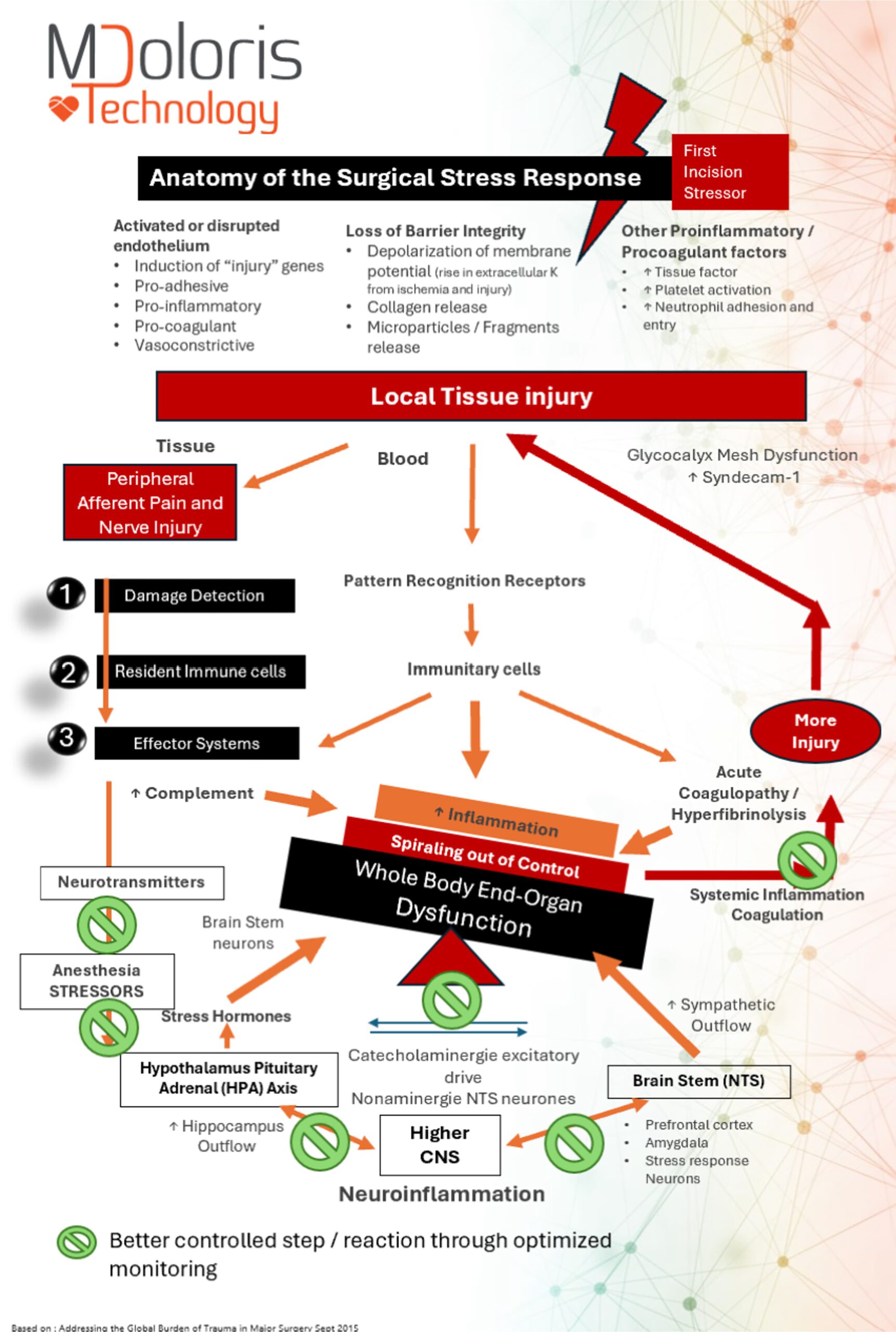MDoloris Technology’s ANS monitoring holds the potential to transform pain management, patient comfort, and personalized care across many fields of applications such as surgical, intensive care and palliative care settings.
As research progresses, and technology evolves, it is likely that we will see more advanced devices in the coming years.
In partnership with the Lille University Hospital, MDoloris is the first company to able to integrate an analgesic autonomous loop system.
This advancement will allow MDoloris Technology to benefit from physiological and automatic feedback to control and optimize the tone of the autonomic nervous system and therefore optimize support anesthetists during surgery. This achievement will mark a significant step forward in anesthesiology, enhancing patient safety, control, and comfort, and allowing anesthetists to focus on other vital parameters.
Additionally, there are many other fields of interest.
Let’s explore how MDoloris technology and autonomic nervous system (ANS) monitoring could evolve in various medical contexts in the coming years.














